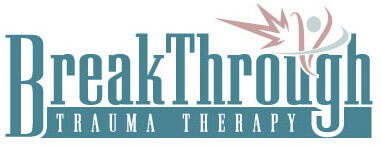The Benefits of Medication and Therapy In Trauma Treatment

Trauma is a deeply distressing and life-altering experience that has long-lasting
effects on your mental health and well-being. The impact can be devastating, whether from a traumatic event or ongoing trauma. Fortunately, trauma therapy and medication are effective treatments for trauma-related conditions such
as post-traumatic stress disorder (PTSD), anxiety, and depression.
You can understand the benefits of trauma treatments by exploring how they work, their significance in the healing process, and the expected improvements. From helping individuals process their emotions to developing long-term coping strategies, the benefits of trauma therapy are numerous and can offer a path toward healing and recovery.
Why Trauma Treatment is Necessary
Trauma is a complex and multifaceted experience. It goes beyond recurring pain and mood dist
urbances. A traumatic event changes the brain, affecting your mental ability to process, learn, reason, think, perceive, discern, understand, or become aware of situations or circumstances. In simple terms, trauma is the dysregulation of fear in your brain.
Trauma-focused therapy provides skills and strategies to help you comprehend, cope, and process the emotions, memories, and thoughts tied to the traumatic experience. You can only find healing when you know the root cause of the problem, its impact on your mental health, and the function of every technique in undoing the damage. Medication is equally vital in balancing brain chemicals offset by trauma. They also diminish the severity of trauma symptoms.
How Trauma Causes the Dysregulation of Fear on the Brain
Trauma makes the amygdala, the stress processing center, hypersensitive and hypervigilant to stress. It prematurely launches the stress response, the flight or fight mechanism, or anxiety in response to phantom stress triggers. The amygdala can also go off because of
- Persistent and uncontrollable thoughts relating to the trauma
- Intrusive memories from the traumatic event
- Lingering nightmares concerning the trauma
- Hypervigilance – expecting and perceiving unrelated situations as trauma
Trauma also reduces the hippocampus volume, the brain part responsible for memories and learning. An abnormal hippocampus increases your vulnerability to anxiety disorders and PTSD. Research shows that the hippocampus is responsible for avoidance conditioning. The symptom intensifies as post-traumatic stress advances.
Trauma interferes with the efficiency of the amygdala in recording and processing an ordeal. The amygdala documents the information as though it is a never-ending nightmare. Hence, why despite knowing this traumatic situation is a past event, your mind tricks you into thinking everything is happening again.
Unfortunately, this erroneous registry gets stored in the hippocampus as a memory. It is also the recollection that gets retrieved every time you remember the event through intrusive memories, rumination, nightmares, or other external triggers. Your inability to reason or apply logic once the dice start rolling is because trauma also dulls your prefrontal cortex, the part of the brain responsible for regulating your fearful thoughts and emotions by employing logic and reasoning.
The dull prefrontal cortex cannot make you aware of your safety or that the event is past. A war veteran may go into hiding or grab a weapon, thinking they are still at war at the sound of something blowing. Similarly, a child may freeze when someone raises their voice for fear of past physical abuse.
Trauma counseling and pharmacotherapy help your brain adapt to constructive ways of dealing with trauma. The trauma therapist teaches you techniques that condition your maladaptive thinking and behavioral habits. You also learn how to regulate your emotions. Medication helps you balance brain chemicals that favor fear dysregulation.
The Advantages of Trauma Therapy
Trauma counseling is pivotal for healing from ongoing or past traumatic experiences. The trauma treatment end goal is to enhance your understanding and awareness of the trauma in fear conditioning, learn your triggers, face your fears, and use adaptive habits to control symptoms.
Trauma Awareness
One hallmark of trauma is the fragmented recollection of events. The amygdala initially registered erroneous information concerning the ordeal. During trauma counseling, your counselor guides you into sequentially piecing together the occurrence of the distressing event. In so doing, your amygdala can process, record, and share the nightmare as a past event without power over your present or future.
Trauma awareness also improves your:
- Engagement level during trauma counseling therapy – letting you know the magnitude of the damage, the crippling effect, and the potential harm to your physical and mental health.
- Adherence to trauma treatment – you can sympathize and empathize healthily with your experience, making therapy bearable and essential.
- Resilience – your ability to forebear, bounce back, and learn from the traumatic experience also increases.
- Ability to identify problem areas and apply the appropriate techniques to foster healing
Challenge Negative Thought Patterns, Emotions, and Behavior
Negative thinking and behavior are maladaptive coping mechanisms. Negative thought patterns arise from memories of past events. They can trigger negative emotions and associated behavior. A negative thinking pattern can cause

- Helplessness – feelings and thoughts of insufficiency and defeat can cripple your problem-solving abilities.
- Anger – the impact of the trauma on your goals, finances, health, and social life can make you bitter or easily offended.
- Resentment – self-criticism, self-hate, and self-blame lower your self-worth
- Catastrophizing – the tendency to expect the worst out of life, believing nothing good can come out of your life.
Trauma counseling models dealing with cognitive and behavioral modification techniques help you form constructive thinking patterns. For instance, you may learn techniques like
- Thought awareness – your PTSD counselor fosters your thought reflection by encouraging awareness of your thought content. Why are you assuming the worst possible outcome? What elements keep recurring in your thought pattern? What was the trigger of this negative thinking habit?
- Thought acknowledgment – you build resilience by knowing your reaction and response to triggers and forging adaptive approaches.
- Exercising rational thinking – include facts in your thoughts instead of taking them as absolute truths.
- Delay your behavioral reaction to your thoughts – negative thoughts induce emotions that trigger negative behavior. Let your feelings play out while you neutralize them with logic.
- Use your thoughts and emotions as pointers – your thoughts and feelings indicate a deep-sitted issue or an unconscious bias. Learn from them instead of reacting to them.
Develop Adaptive Coping Habits
Aside from improving your awareness of trauma, cognitive and behavioral techniques also include adaptive coping habits. Categories of constructive coping habits include:
- Problem-focused coping – focuses on finding solutions rather than fixating on the trauma. It may mean breaking the problem into manageable portions or handling one issue at a time instead of letting the entire challenge overwhelm you.
- Emotion-focused coping – focuses on regulating emotional surges by embracing relaxation techniques like meditation, controlled breathing, mindfulness, journaling, and music therapy or cultivating habits like delayed reaction or deductive reasoning.
- Social support – your trauma counselor can opt to use a support group-based therapy to enable you to find support and accountability in your recovery journey. Other people’s testimonies and life experiences help you cultivate hope and find encouragement.
- Meaning-making strategies – help you reframe your perception and outlook of the trauma. Instead of wasting away, you can develop life lessons, capitalize on positive outcomes, and walk with others going through a similar situation.
Reduce the Intensity of Trauma Symptoms
In PTSD and childhood trauma counseling, the therapist can focus on therapy techniques that reduce the severity of your symptoms. For instance, in prolonged exposure therapy, your PTSD counselor guides you into gradually approaching trauma memories, thoughts, emotions, and situations. Each session lessens the intensity of triggers and builds your resilience toward the trauma. Cognitive behavioral therapy and cognitive processing therapies also equip you with skills and mindset efficient in dealing with trauma symptoms.
Find Support and Accountability

Your trauma therapist is also part of your support system. They provide guidance and an unbiased opinion about your condition. They empower you to develop a healthy mindset about your trauma, hold your hand as you go through the process, provide a safe environment to probe, process, acknowledge your weakne
ss and faults, and overcome your fears.
A trauma counselor is also essential in keeping you accountable. They check on your progress, encourage you to work on your weakness, guide you on your struggle areas, and celebrate your wins. You do not have to bear the trauma burden alone when you have a trauma therapist.
The Benefits of Medication in Trauma Treatment
Medication, such as antidepressants, antipsychotics, and mood stabilizers, can help alleviate symptoms of trauma-related disorders such as depression, anxiety, and post-traumatic stress disorder (PTSD). These medications work by regulating levels of neurotransmitters in the brain that are involved in mood, anxiety, and stress responses.
Trauma destabilizes serotonin, dopamine, and cortisol, and adrenaline in your brain. The imbalance of these brain chemicals sustains your hypersensitivity to fear and inclination to addictive maladaptive habits like substance abuse, promiscuity, gambling, and eating.
Medication balances these chemicals, improving your response to trauma therapy. Medication requires therapy to condition your mind and behavior positively. Your trauma counselor determines which trauma treatment is suitable for your condition.
Choose Trauma Treatment to Begin Your Healing Journey Today
Trauma is emotionally and physically overwhelming. You do not have to bear this burden alone when there are professionals dedicated to helping you overcome this mental condition. Begin your healing journey with trauma therapy.
Contact Us
